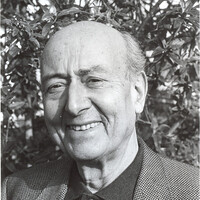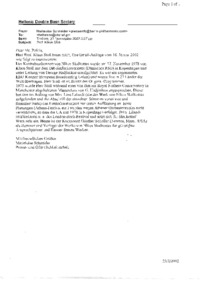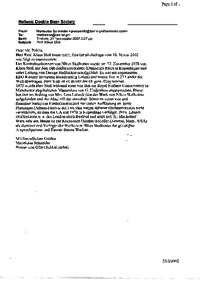- Πρόσωπο
- Άνδρας
- 03 Μαίου 1923
- Bόλος
- 29 Νοεμβρίου 2015
- Αθήνα
- Έλληνας
- Μουσικός | Συγγραφέας
-
- Ωδείον Αθηνών (1934-1943) [Διδάσκοντες: Μιχαήλ Βελούδιος, Σπύρος Φαραντάτος, Αντώνης Σκόκος] - Τύπος σπουδών: Τυπικές - Τίτλος σπουδών: Δίπλωμα επιπέδου ανωτέρας σχολής - Γνωστικό αντικείμενο: Πιάνο, Ανώτερα θεωρητικά
- Universität Mozarteum (1945-1949) - Τύπος σπουδών: Τυπικές - Τίτλος σπουδών: Δίπλωμα επιπέδου ανωτάτης σχολής - Γνωστικό αντικείμενο: Πιάνο, Διεύθυνση Ορχήστρας, Διεύθυνση Χορωδίας
- Hochschule für Musik und Theater Hamburg (1952-1957) [Διδάσκων: Eduard Erdmann (05 03.1896 – 21.06.1958)] - Τύπος σπουδών: Τυπικές - Γνωστικό αντικείμενο: Πιάνο
- Διευθυντής ορχήστρας | Διευθυντής χορωδίας | Μουσικοπαιδαγωγός
-
- Royal Northern College of Music (1961-1988) - Γνωστικό αντικείμενο: Πιάνο
-
- Lilly Lehmann Medal of the Mozarteum International Foundation
- Royal Northern College of Music
- Wikipedia | ΜΜΒ "Λίλιαν Βουδούρη" | Μέγαρο Μουσικής Αθηνών
-
- Q5540136 ⟶ Giorgos Hadjinikos
-
- 2694177 ⟶ George Hadjinikos
-
- 314807830 ( Personal ) ⟶ Hadjinikos, George 1923-2015
- Το λεξικό της ελληνικής μουσικής : από τον Ορφέα έως σήμερα - Αθήνα: Εκδόσεις Γιαλλελής, 1998 , σελ.509-512 [τ.6ος]
- central
- Γιώργος Χατζηνίκος (Ελληνική) | Giorgos Hadjinikos (Αγγλική)
- Greek musician (Αγγλική)
- George Hadjinikos (Αγγλική)
- George Hadjinikos
- 03-05-1923
- 29-11-2015





